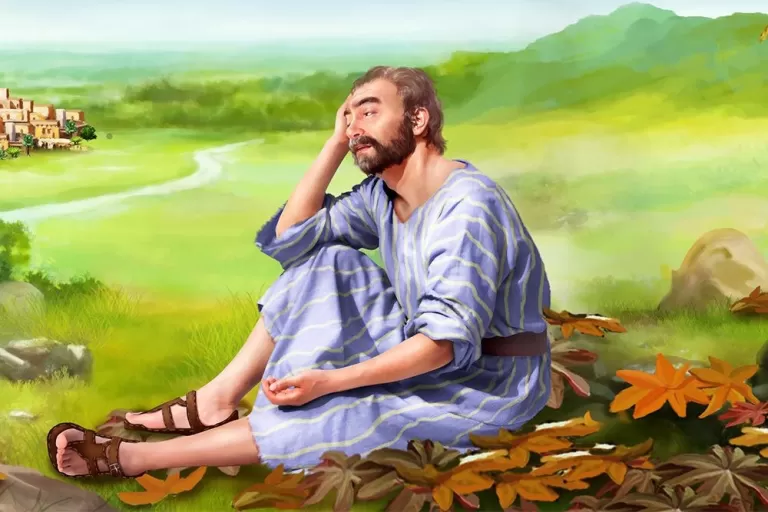
You know, it seems to me that, speaking of Fathers’ Day, too often we focus so much on the Godhood of God that we fail to recognize the Fatherhood of God. Now indeed, He is all-knowing and all-powerful, and all-just. He governs the universe and holds the destinies of men and nations in His hands. But so too, in every worthy sense of the word, He is a Father. He wants us to call Him Father. He is kind, gentle, loving, and solicitous of the welfare of us, His children. Now if you wouldn’t mind, may I share a story to illustrate my point?
Typically, when we think of the story of the prophet Jonah, we automatically think of a whale, and how Jonah was swallowed for trying to run away from the mission that God had given him. And that’s true; he was. But there’s another element to that story that’s worth telling.
You see, Jonah was a prophet during the time that Israel was ruled by Assyria, a ruthless world power. When Jonah is commanded to go to the city of Nineveh and call them to repentance, he attempts to run away, but not so much because he just doesn’t want to go – he’s not lazy – but because Nineveh is the capitol city of Assyria, Israel and Jonah’s avowed enemies. And what’s more, Nineveh is a city of heathen gentiles, another fact that would make them detestable to Jonah.
Well, after the Lord manages to – what shall we say? – adjust Jonah’s attitude in the whale’s belly, Jonah goes to Nineveh and boldly and powerfully calls the city to repentance saying,
“… Yet forty days, and Nineveh shall be overthrown.” (Jonah 3:4)
Immediately – and our nation would do well to do similarly – the people of Nineveh begin to fast, pray, and bring themselves down in the depths of repentance. They are spared the destruction; God has mercy on them. But that mercy angers Jonah to the point that he goes to the Lord and asks the Lord to kill him. The Lord refuses, of course. So Jonah, pouting, goes outside the city and sits down on a hill, and waits to see what will happen to the city.
The Lord decides to teach Jonah another lesson. The Lord causes a broad-leafed plant to grow up overnight over Jonah’s head to shield him from the hot sun. Ah, the next day, Jonah enjoys that plant for its shade. But then a worm kills the plant. By the end of the next day, Jonah is suffering from heat stroke, and again he’s angry with the Lord, this time for killing the plant. And again, Jonah’s so mad he asks the Lord to kill him. At this point now, Jonah is ready to be taught. The Lord comes to him and says in essence,
"Jonah, are you angry with me because I killed your shade plant?"
‘Yes!’ Jonah answers.
"Jonah, you feel sorry for that plant, yet you did no work to plant it or to nurture it. It grew up in one day, and it died in one day. You are angry with me because you wanted it to live. Jonah, shouldn’t I have pity on a great city of 120,000 of my children who are lost and confused? Shouldn’t I do everything I can to help them? Shouldn’t I want them to live?"
The Book of Jonah ends right there, but to me – this is a classic story. It demonstrates to me the Fatherhood of God. Whoever we are and wherever we are, He loves us, and He will do everything for us, His children, that we will allow Him to do for our happiness here and hereafter. I tell you, I love Him.
This Sabbath Fathers’ Day, for One who has done so much for us, could we do just a little more to remember the One we call "Our Heavenly Father"?
Thank you.
Story Credits
Glenn Rawson – May 1998
Music: “O My Father” (edited) – Lex de Azevedo
Song: “O My Father” – Mormon Tabernacle Choir
Source: Adapted from Jonah 3, 4.

